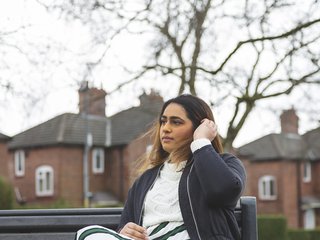Childhood leukaemia side effects
Many cancer drugs cause unwanted effects (side effects) because they damage normal cells as well as killing cancer cells.
Managing side effects
Even if two children are having the same treatment, they may have a different experience of side effects. Your child won’t get all, and may not even get any, of the potential side effects – try to keep this in mind when you read about them. The side effects are mostly temporary.
Always tell your child’s hospital team if you or your child notice any possible side effects. There may be treatments for particular side effects, or the consultant may be able to change the dose of a drug to lessen its effects.
Side effects from chemotherapy
There’s a range of side effects your child may have while they’re having treatment. These will vary depending on the particular drugs, and on the individual child. Everyone is different.
Here are some of the most common side effects that can happen when a child has treatment with chemotherapy:
- hair loss
- bruising and bleeding
- infections
- feeling sick and vomiting
- a sore mouth or mouth ulcers
- constipation (difficulty pooing)
- diarrhoea (frequent watery poos)
- fatigue (extreme tiredness)
- rashes
- an achy flu-like feeling.
Late effects
Chemotherapy can lead to longer term side effects, called late effects. These depend on the type and quantity of drugs used to treat the leukaemia.
It can be hard to work out which drugs are responsible for which late effects, as your child may have a combination of different drugs over time. Your child’s consultant or clinical nurse specialist will advise you on possible late effects before treatment begins, and your child will have ongoing follow-up to monitor for these.
Your child’s fertility
You may be worried about the effect of treatment on your child’s ability to have their own children in the future. It’s a concern that many parents have, and your consultant will be able to discuss this with you before your child begins their treatment.
It’s also natural to worry about the effects of your child’s treatment on future grandchildren. Lots of evidence from clinical studies has shown that a parent who’s had cancer treatment doesn’t pass on a higher risk of cancer or other health problems to their children.
We have more information about fertility and blood cancer treatment. Young Lives Versus Cancer has information about sex and fertility for young adults.
Supportive care
Supportive care is treatment that isn’t directly for the leukaemia but helps with treatment side effects or leukaemia symptoms.
Supportive care for childhood leukaemia might include:
- antibiotics to prevent and treat bacterial infections
- antifungal medicine to prevent and treat fungal infections
- an antibiotic twice a week to lower the chance of getting a particular type of pneumonia (chest infection)
- transfusions of red blood cells and platelets (because chemotherapy drugs affect the bone marrow’s ability to make new blood cells)
- steroid eye drops to prevent eye irritation or infections
Sometimes children may find it particularly difficult to eat or drink because of the side effects of chemotherapy. Dietitians within your team can help with this.
Some children may need extra help with nutrition and will be fed temporarily by a tube going directly into their stomach (enteral feeding). If this is necessary, your healthcare team will explain how this works.
Your child’s hospital team may also monitor their heart using ultrasound scans as some drugs can affect the heart muscle.
Complementary and alternative therapies
Complementary therapies are sometimes used alongside standard medical treatments like chemotherapy. If you’re considering complementary therapies like massage or aromatherapy to support your child’s general well-being, speak to their healthcare team first to check if it’s safe.
Alternative therapies are used instead of mainstream healthcare treatments and we would not recommend using alternative therapies in place of proven medical care.

Blood cancer and young adults
Young adults with blood cancer share tips and advice on side effects, friendships, work, study and lots more.
